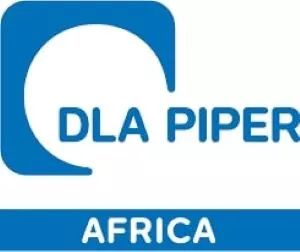1. Introduction
Leasing is a growing market in Nigeria. According to a report released by the Equipment Leasing Association of Nigeria (ELAN), the Nigerian Leasing industry recorded 1.6% growth in Q1 2022. The available statistics show an outstanding lease volume as at Q1 2022 which stood at ₦2.629trillion as against ₦2.587trillion in Q4 2021. The growth was attributed to the stability in the microeconomic environment, following the continuous post-pandemic recovery experienced in the first quarter.1
In terms of the importance of the leasing business to the Nigerian economy, it is a known fact that leasing increases capital investment and economic growth and also enables businesses and even governments (at the local and national level), to acquire capital assets for production.2
Therefore, it is necessary to look into the regulatory framework and structure of leasing business arrangements in Nigeria.
Leasing means the business of letting or sub-letting movable property on hire for the purpose of the use of such property by the hirer or any other person in any business whatsoever and where the lessor is the owner of the property regardless of whether the letting is with or without an option to purchase the property.3 This definition is encompassing of the business of rentals, operating leases, finance leases conditional sale and hire purchase. However, the above businesses are differentiated by the terms of contract as agreed between parties. A contract of rent is typically that of hire or letting of property for a short period of time and for all time from hours to a month and sometimes a longer period of time based on more frequently received rentals and the incidence of maintenance of the property lies with the hirer for the period of the rental.
2. Regulatory Framework of Leasing Business in Nigeria
The regulatory laws are:
- Equipment Leasing Act 2015
- Banks and Other Financial Institutions Act 2020Central Bank of Nigeria (CBN) Revised Guidelines for Finance Companies in Nigeria 2014
The regulatory bodies are:
- Equipment Leasing Regulatory Authority (ELRA)
- Central Bank of Nigeria (CBN)
- Banks and other Financial Institutions Act 2020 (BOFIA)
3. Structure of Leases in Nigeria
A lease arrangement may take the form of any of:
- A Finance or Capital Lease; or
- An Operating Lease
4. Operating Lease
An operating lease is a contract between a lessee and a lessor under the terms of which the lessor permits the use of an asset without transferring the ownership rights of the subject matter asset to the lessee. In an operating lease, the true value or cost of the asset is not fully paid up or written off by the rental payments made during the subsistence of the lease. This means that the asset is not entirely amortized during the lease period.
An operational lease the lease is for a shorter period than the asset's economic life cycle, and after the first term has passed, the asset may be subsequently leased after the expiration of the lease period. It can be cancelled before the end of its tenor by either party and the lessor retain ownership, risks and benefits accruing to it. This may be differentiated from a contract for rent which is typically that of hire or letting of property for a short period of time and for all time from hours to a month and sometimes a longer period of time based on more frequently received rentals and the incidence of maintenance of the property lies with the hirer for the period of the rental.
In an operating lease, the asset is not entirely amortized during the primary period (if any) of the lease and in which the lessor seeks to recover the cost and profit from the sale of the returned asset at the end of the lease period rather than relying on rentals during that time.
The lessor is entitled to receive lease rentals for the lease period; the lease rental is determined by a number of factors and the base value of the asset. The lessor may also earn additional income through charges for added services such as asset maintenance, insurance and technical support that may be provided during the lease period by the lessor.4
5. Features of Operating Lease5
- The lessor bears the responsibility for servicing and maintaining the asset and these costs are included in the lease rental. It enables the lessor to keep a pool of qualified maintenance personnel for cost-effectively maintaining a large number of assets.
- The total lease rentals for the tenor of the lease is typically lower than the cost of the asset.
- The lessee can cancel the lease before the expiration of the primary lease period.
- Lhe lessor may provide extra services relating to the asset such as insurance, product warranties, replacements (i.e. replacing the leased asset with another pending major repair on the asset) and other technical and operational support.
- In a full-service operating lease, the lessor is directly affected by the state and efficiency of the asset. The lessor therefore has a great interest in ensuring the asset is kept in good condition.
6. Finance Lease
A financial lease is also known as a capital or full pay out lease. This is a contract involving payment over an obligatory period (known as the primary or basic period) of specific sums sufficient in total to amortise the capital outlay of the lessor. The lessee in finance lease arrangement usually has a choice after the expiration of the primary period of either purchasing the asset or extending the lease over a secondary period.6 It is similar to purchasing an asset with a loan and paying back the loan in instalments including the accrued interest. However, it differs from a hire purchase or conditional sale which from initiation of the contract, the hirer agrees to purchase the asset and the owner merely transfers the asset at the end of the period after all instalments have been paid.
7. Features of Finance Lease
- The lessee and lessor are obligated to the lease and cannot cancel it except by mutual consent before the expiration of its tenor.
- Finance lease usually last for a longer period of time. It is drawn in such a way as to cover substantially the economic life of the asset during which the lessee must fulfill the obligations of the lease.
- The total lease rentals in a finance lease are usually higher than the original value of the leased asset. This is to cover all attendant costs and expenses and the lessor's return on investment during the tenor of the lease. The salvage of the asset is extra profit to the lessor.
- Generally, the lessee is responsible for the maintenance of the asset.
8. Licensing and Registration Regime
The business of Equipment Leasing is regulated by the provision of the Equipment Leasing Act 2015 (ELA) which seeks to regulate the business of equipment leasing in Nigeria such that the relationship between the lessor and the lessee and relationship with third parties is protected by the Equipment Leasing Regulatory Authority (ELRA). In this regard, the ELA provides that an equipment7 lease agreement shall irrespective of the value of the leased equipment, be registered with the ELRA not later than 14 days after the commencement of such lease agreement, or within three months for a lease agreement made before the Commencement of the ELA. Non-registration of a registrable lease agreement shall render the lease agreement invalid as between the parties to the agreement but shall render same unenforceable against any third party acting in good faith, for value without notice of the lease agreement.8
We note that the ELRA has not been inaugurated as such there is no regulatory oversight for registration of equipment licensing business in Nigeria. However, it is important to note that section 6 of the ELA provides that a person may only carry on the business of equipment leasing if:
- It is a limited liability company and the MEMART expressly provides that it will carry on the business of equipment leasing; and
- It has satisfied all requirements prescribed by the guidelines made from time to time by the ELRA.
The CBN regulates companies that carry on business in the form of finance leases. Whilst the CBN does not regulate operating leases, it is important to note that where a regulated business carries on both operating lease and finance lease business and there is no distinction in the lines of business, the CBN will regulate the lease business.9 Leasing companies that engage in finance leases are required to apply for a licence to carry on the business as a finance company regulated by the CBN and comply with the prudential/ regulatory requirements for Finance Companies as defined by the CBN.10
9. Conclusion
In summary, the leasing business is fast gaining recognition as it has influenced some major decisions in the various sectors of the economy in Nigeria. It is highly relevant to Nigeria's economic growth and expansion. The business offers convenient structures to suit the requirements of potential lessees. Therefore, a lessee may opt for an operational lease, in which case the asset may be leased for a specific duration without a transfer of ownership or amortization of the asset value; or a financial lease which is a lease with obligatory payment over a period of time as well as an option to purchase the leased asset upon expiration of the lease term.
Footnotes
1. "Lease Volume Story 1st Quarter 2022" in https://elannigeria.org/wp-content/uploads/2022/06/lease-volume-story-1st-quarter-2022.pdf (Accessed 26th August 2022)
2. A. Musa," Can Leasing Industry Help Solve Nigeria's Economic Problems?" in https://www.thisdaylive.com/index.php/2016/06/26/can-leasing-industry-help-solve-nigerias-economic-problems/amp/ (Accessed 26th August 2022)
3. Banks and Other Financial Institutions Act of 2020
4. "Lease Classification" in https://elannigeria.org/industry-overview/lease-classification/ (Accessed 9th August 2022)
5. . E. N. Egbuna, "Equipment leasing in Nigeria: trends and prospects" in https://dc.cbn.gov.ng/cgi/viewcontent.cgi?article=1387&context=bullion (Accessed 9th August 2022)
6. Central Bank of Nigeria (CBN) Revised Guidelines for Finance Companies in Nigeria
7. Section 44 of the Equipment Leasing Act states that equipment means any movable or immovable equipment howsoever described. This may be motor vehicle, aircraft, ship, plant and machinery and office equipment like computer and air-conditioning units. Thus, equipment may be described as the assets or capital required for running a business which are essentially tangible in nature.
8. Sections 13 & 17 of the Equipment Leasing Act
9. Central bank of Nigeria, Revised Guidelines for Finance Companies in Nigeria, April 2014.
10. Ibid
The content of this article is intended to provide a general guide to the subject matter. Specialist advice should be sought about your specific circumstances.



